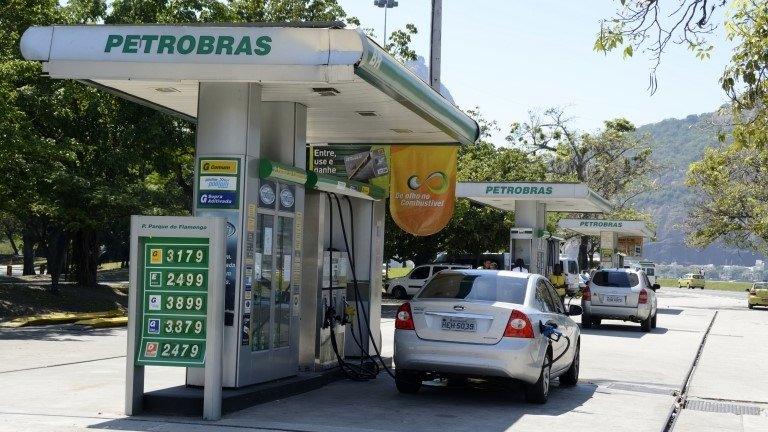Petrobras scandal: Brazil's energy giant under pressure
- Published
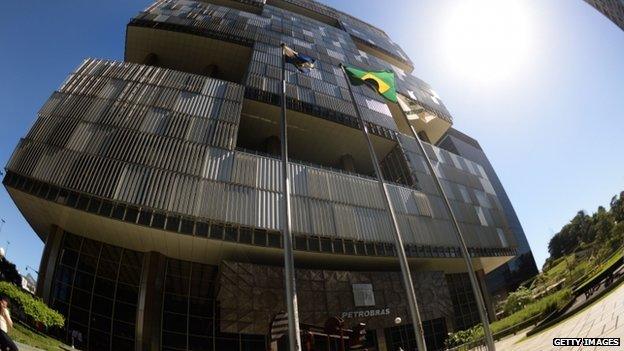
Petrobras has been rocked by allegations of corruption and money laundering.
Brazil's state-run oil giant Petrobras has always been a company of superlatives.
In recent years, it has become not only the largest but also one of the most internationally recognised firms in Latin America.
It has discovered huge deep-water oil reserves, which experts predict could turn Brazil into a top energy player.
And in one of the biggest share sales in history it raised $70bn in 2010.
But recent investigations by the Brazilian Federal Police and public prosecutors have added an unfortunate addition to this record.
They have put Petrobras at the centre of what is thought to be one of the biggest corruption scandals in Brazil's history.
"This [scandal] may change the country forever," President Dilma Rousseff acknowledged during the recent G20 summit in Australia.
A number of Petrobras directors are accused of taking bribes from construction companies and funnelling funds to parties of the ruling coalition.
The investigation - dubbed Operation Car Wash - actually started eight months ago. But it was only in recent days that it became clear how far it might go.
Last Friday, Brazilian Police carried out raids across six Brazilian states.
They arrested 23 people - among them, the former Petrobras Service director Renato Duque and 19 presidents and executives of some of the country's largest construction and engineering firms.
Apart from the allegation of bribing Petrobras employees, the companies are accused of forming a cartel to drive up the prices of major Petrobras infrastructure projects.
The large number of prominent Brazilian businessmen detained was unprecedented for an anti-corruption investigation.
Huge values
Values involved in the scandal are breathtaking.
According to the Brazilian Federal Police the group under investigation moved more than $3.9bn in what police describe as "atypical" financial transactions.
Brazilian Courts blocked around $270m in assets belonging to various suspects and federal agents revealed contracts worth $22bn are regarded as suspicious.
Former Petrobras director Paulo Roberto Costa, who worked at the company from 2004 to 2012, has told investigators that politicians received a 3% commission on contracts signed during this period.
On Tuesday the Brazilian press reported that, as part of a deal to avoid detention, one Petrobras manager, Pedro Barusco, agreed to return $100m to the company.
Damage report
On the eve of Friday's raids, Petrobras was obliged to announce that it would have to delay the publication of its third quarter results due to the investigation.
According to the news agency Agencia Estado, the auditing company PricewaterhouseCoopers refused to sign off the firm's results.
Market analysts and investment banks say the impact on the Brazilian oil giant could be enormous.
Morgan Stanley, for instance, estimates it could have slashed the value of the company's assets by $8.1bn.
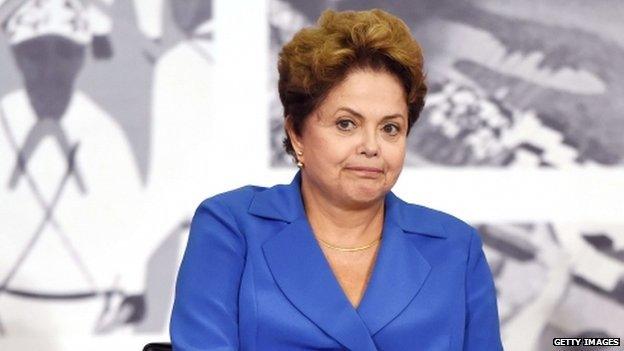
Brazil's President Dilma Rousseff chaired the company between 2003 and 2010 but says she knows nothing about these allegations
UBS estimated the damage may amount to something between $10bn and $15bn.
Plea Bargains
The scandal at Petrobras began to unravel as a result of the confession of Costa and black-market currency dealer Alberto Youssef - accused of money laundering, and both men's images are now a daily part of the Brazilian news cycle.
The two were first arrested in March and were the first to enter a plea bargain deal with the prosecutors - a strategy that is likely to be extended to other suspects.
Federal Police say nine of Brazil's biggest construction firms are now under investigation: Camargo Correa, OAS, UTC, Odebrecht, Mendes Junior, Engevix, Queiroz Galvao, Iesa and Galvao Engenharia.
The group includes some of the most important donors to political party campaigns.
And as the next phase of the operation is set to focus on politicians favoured by the scheme, local newspapers have reported that the raids have created an atmosphere of panic in the capital Brasilia.
"In the short term, the scandal puts new pressure over the recently re-elected government of President Dilma Rousseff - already troubled by weak economic growth and inflation rates that are too close to the top of the Central Bank's target," says Adriano Pires, from the Brazilian Infrastructure Center (CBIE).
"In the medium and long term, however, this scandal may impose a major overhaul of the relationship between private companies, politicians and state-run firms in Brazil," Pires adds, pointing to regulations in the area of campaign financing.
Impact
Ms Rousseff herself chaired the Petrobras board of directors from 2003 to 2010, although she denies knowledge of any wrongdoing, and stresses her government's full backing for the investigation, and determination that wrongdoers will be punished.
According to public prosecutors, the corruption scheme has been in operation at Petrobras for at least 15 years - and if that is true it would have pre-dated the Workers' Party government.
The impact of the case on the country's growth prospects is as yet unclear.
Economist Silvio Campos Neto, from the Consultancy firm Tendencias, is very pessimistic.
"This is the most important company in the country and at times when we are struggling to recover growth, such a huge bribery scandal will not give a positive message to potential investors," he says.
Sergio Lazzarini, a professor at the business school Insper, however, has a slightly more positive view.
He says corruption is an endemic problem in emerging markets: "At least this scandal shows that Brazil has strong institutions, which are able to investigate and expose a case that involves powerful businessmen and politicians."
- Published17 November 2014
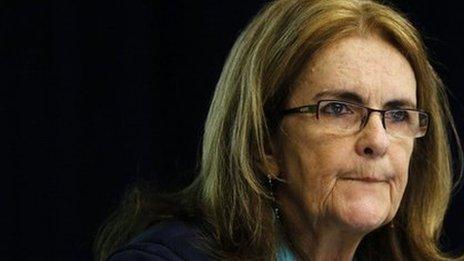
- Published17 November 2014
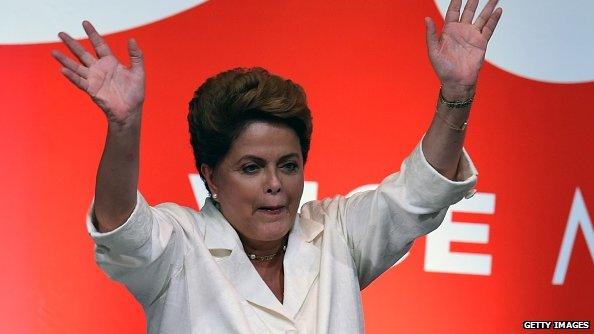
- Published18 November 2014
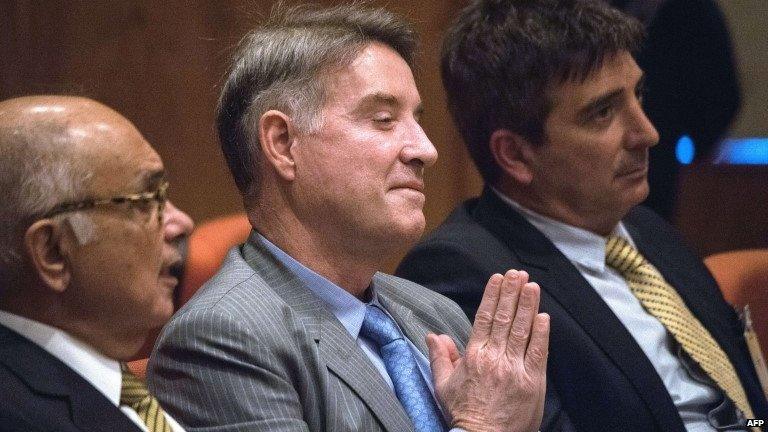
- Published14 November 2014
